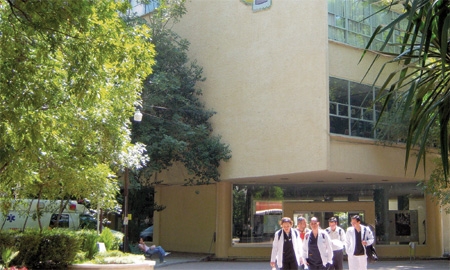
Mexico is home to nearly 3,000 institutions of higher education, a figure made even more impressive when compared to the 50 institutions it had just 60 years ago. Enrollment has multiplied 100-fold since the 1950s, as well, yet the state deems this to be insufficient. Since the year 2000, the national government has made greater access to tertiary level schools a priority as part of its strategy to raise more people out of poverty and slow the tide of illegal immigration to the U.S. The target is to raise gross enrollment from 29% today to 65% by 2030.
“The main challenge is to form a solid chain between innovation, science, technology and education,” says Juan Carlos Romero Hicks, general director of the National Council of Science and Technology (CONACYT).
Here on pages five, six, and seven, four institutions of higher learning, both public and private, are highlighted for their excellence and efforts towards turning Mexico into a successful 21st century economy.
INSTITUTO POLITECNICO NACIONAL
The National Polytechnic Institute or Instituto Politecnico Nacional (IPN) is celebrating its 75th anniversary this year in addition to recently being given the Recognition of Quality and Excellence 2010 for the relevance and high quality of its academic programs.
IPN was founded at the beginning of 1936 during the administration of President Lazaro Cardenas del Rio and is now one of the largest public universities in Mexico.
Historically, the existing educational institutions were geared towards the elite society, but since IPN’s formation, those who had no access to higher education have been able to benefit from this public, secular, and free institution.
| ‘YOU CANNOT CONCEIVE OF MEXICO WITHOUT THE PARTICIPATION OF ENGINEERS IN THE CONSTRUCTION AREA OR POWER, WHERE A SIGNIFICANT PORTION OF GRADUATES ARE FROM OUR CLASSROOMS’ |
IPN educates 350,000 students in language centers and 20 research centers across Mexico. The institution offers instruction in three major fields: physical and mathematical sciences, engineering, and social and administrative sciences with a total of 81 programs offered at IPN in addition to technological training at the end of three years.
Dr. Yoloxochitl Bustamante Diez, general director of IPN, recognizes that education, especially in technical fields, is one of the key factors in developing and advancing the country. “I think in this way, particularly in the field of engineering and biological medical science, IPN has focused on those because they are areas that have had growth in our country,” she says. “You cannot conceive of Mexico without the participation of engineers in the construction area or power, where a significant portion of graduates are from our classrooms.”
However, Dr. Bustamante does not only emphasize technical schooling; she also encourages international relations, as she believes it gives students a competitive advantage in cross-cultural dealings with foreign institutions, serving as future support for businesses. “We have a large number of companies of American origin in the country which our students can work with,” she says. “They can make significant contributions through that solid training.”
She stresses the importance of student mobility and culture in education, made possible through mutually beneficial cooperation agreements IPN has with countries ranging from the U.S. to several in Africa and Central America.
“This is cultural,” she states. “It is not necessarily studying a particular career, but the student learns from another culture or learns another language, so that they understand the world.”
Dr. Bustamante would especially like to cultivate Mexico’s relations with the U.S., which is home to many of the most prestigious research institutions in the world. She believes in the future of Mexico, as it is a growing country making significant efforts through education to advance to the level of more developed economies.
“Mexico is a country that has respect which has associated culture and art to complement the life of any citizen,” she says. “It’s a country that is willing to have friendly relations with the world.”
0 COMMENTS